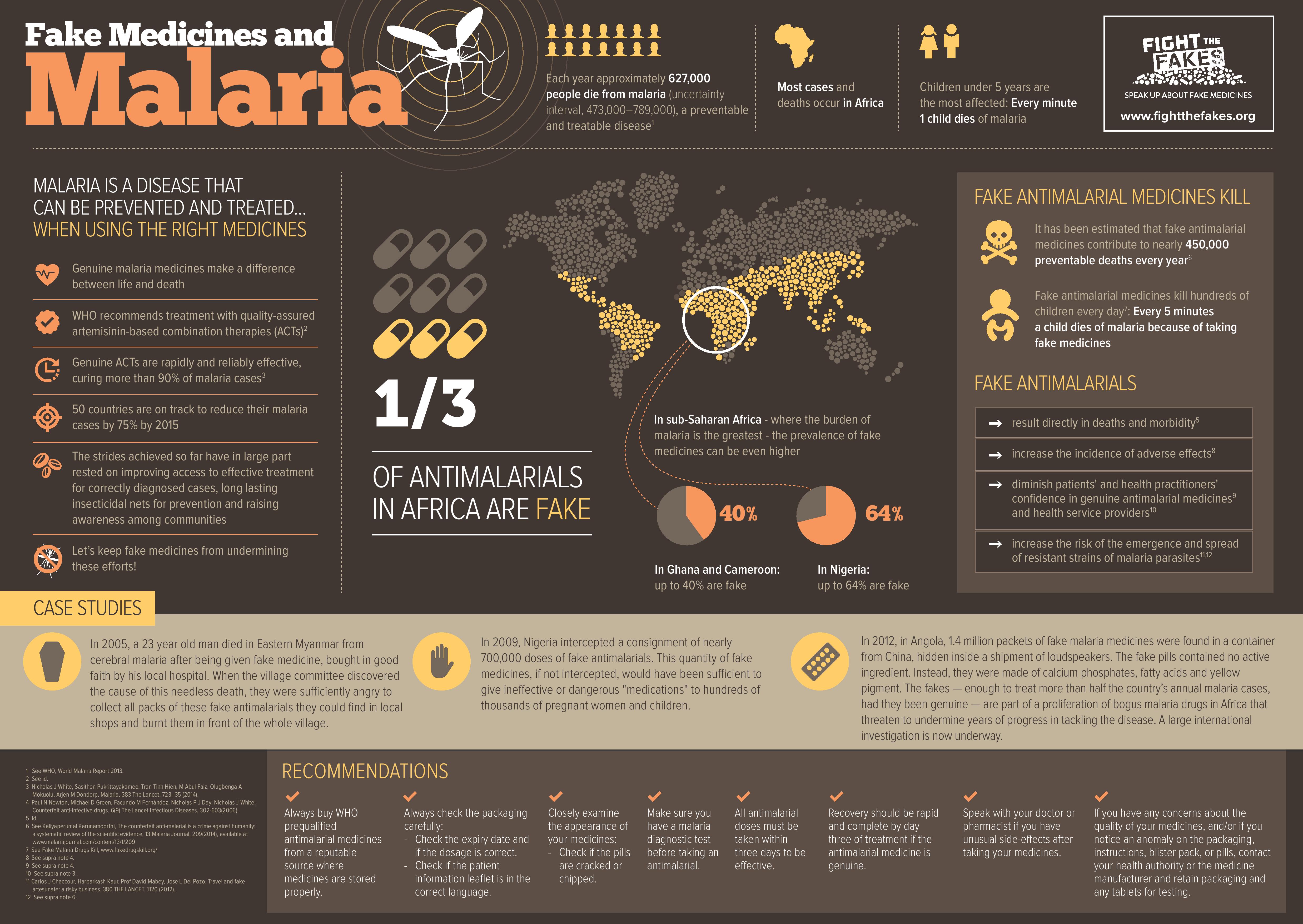
Tackling
Global health challenges
Malaria
Malaria
Our member companies are partnering with governments, research institutes, PDPs and NGOs to discover improved malaria medicines and new vaccines. They are also active in health partnerships, combining prevention, training, diagnosis and treatment.
IFPMA endorses WHO’s Global Malaria Programme and its partner the Roll Back Malaria Partnership. Our industry recognizes that malaria elimination requires action from all angles, from increased access to treatments, improved education and training of health workers and the research and development of new medicines and vaccines.



Malaria, a parasite transmitted from the bites of infected mosquitoes, is still one of the world’s biggest killers. Though preventable and curable, malaria takes the lives of 600,000 people each year, most of them pregnant women and children. 90% of these deaths occur in sub-Saharan Africa; in Southeast Asia a more deadly form of the parasite, resistant to artemisinin, the key ingredient in most effective malaria treatments, is increasing in numbers and spreading across borders.
Malaria elimination requires action from all angles, from increased access to treatments, improved education and training of health workers and the research and development of new medicines and vaccines.
IFPMA member companies are on the verge of making imminent breakthroughs in discovering new malaria treatments, with 3 new medicines in Phase III/IV of production and a new vaccine under evaluation at the European Medicines Agency. There are an additional 30 R&D projects for malaria in the pipeline.
Our industry identifies R&D collaboration as an instrumental tool by which to combat one of the most pressing global health challenges. To allow for stakeholders to draw on their respective resources and experiences to optimize results, IFPMA member companies are partnering with national governments, research institutes, product development partnerships (PDPs) and NGOs in over 15 programs that deal with malaria medicines and vaccine innovation, many of them focusing on combating antimalarial or insecticide resistance.
These partnerships include the Tres Cantos Open Lab of GlaxoSmithKline for drug discovery, the Novartis Malaria Initiative and the contributions of the R&D pharmaceutical industry to the Medicines for Malaria Venture (MMV).
Though R&D plays a key role in attainment of a world free of malaria, increasing prevention interventions and access to malaria diagnosis, effective case management and treatment is another core objective for IFPMA member companies. Innovative partnerships in this area include the SMS for Life partnership to prevent medicine stock outs, maternal health training programs for nurses and midwives so that they are better equipped to detect malaria and the Power of One Campaign which donates annually 1 million antimalarial treatments in Zambia.

Our member companies are also very active in the global fight against fake medicines. It is estimated that 700’000 people die because of fake TB and malaria medicines every year. Fake malaria medicines contribute to the spread of antimalarial resistance and undermine efforts to reverse the global malaria epidemic.
214 million
malaria cases reported worldwide in 2015
37% global decrease
in malaria incidence between 2000 and 2015
2/3 of all malaria deaths
are children under 5














